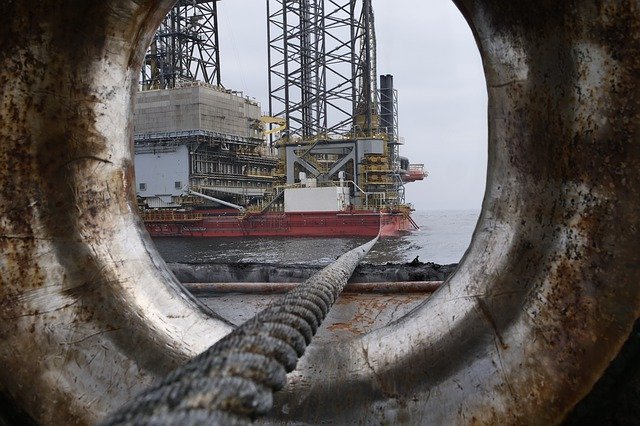
New North Sea oil and gas licences to boost British energy independence
London, 01 August, 2023, (Oilandgaspress) – Hundreds of new oil and gas licences will be granted in the UK, the Prime Minister has confirmed today (Monday 31 July), as the UK Government continues to back the North Sea oil and gas industry as part of drive to make Britain more energy independent.
The Government and the North Sea Transition Authority (NSTA) are today announcing a joint commitment to undertake future licensing rounds, which will continue to be subject to a climate compatibility test.
By adopting a more flexible application process, licences could also be offered near to currently licensed areas – unlocking vital reserves which can be brought online faster due to existing infrastructure and previous relevant assessments.
With the independent Climate Change Committee predicting around a quarter of the UK’s energy demand will still be met by oil and gas when the UK reaches net zero in 2050, the Government is taking steps to slow the rapid decline in domestic production of oil and gas, which will secure our domestic energy supply and reduce reliance on hostile states.

This will increase the UK’s energy security and reduce dependence on higher-emission imports, whilst protecting more than 200,000 jobs in a vital industry as we grow the UK economy. As part of a visit to a critical energy infrastructure site in Aberdeenshire today, the Prime Minister will highlight the central role the region will play in strengthening the UK’s energy independence and meet the next generation of skilled apprentices key to driving this work forward.
The NSTA – responsible for regulating the oil, gas and carbon storage industries – is currently running the 33rd offshore oil and gas licensing round. They expect the first of the new licences to be awarded in the autumn, with the round expected to award over 100 licences in total.
Future licences will be critical to providing energy security options, unlocking carbon capture usage and storage and hydrogen opportunities – building truly integrated offshore energy hubs that make the best use of the established infrastructure.
This comes as new analysis released by the NSTA today shows that the carbon footprint of domestic gas production is around one-quarter of the carbon footprint of imported liquified natural gas. As the UK is a rapidly declining producer of oil and gas, new oil and gas licences reduce the fall in UK supply in order to ensure vital energy security, rather than increase it above current levels – so that the UK remains on track to meet net zero by 2050.
UK Prime Minister Rishi Sunak said:
We have all witnessed how Putin has manipulated and weaponised energy – disrupting supply and stalling growth in countries around the world.
Now more than ever, it’s vital that we bolster our energy security and capitalise on that independence to deliver more affordable, clean energy to British homes and businesses.
Even when we’ve reached net zero in 2050, a quarter of our energy needs will come from oil and gas. But there are those who would rather that it come from hostile states than from the supplies we have here at home.
We’re choosing to power up Britain from Britain and invest in crucial industries such as carbon capture and storage, rather than depend on more carbon intensive gas imports from overseas – which will support thousands of skilled jobs, unlock further opportunities for green technologies and grow the economy.
The UK’s oil and gas industry are also vital to driving forward and investing in clean technologies that we need to realise our net zero target, like carbon capture usage and storage, by drawing from the sector’s existing supply chains, expertise and key skills whilst protecting jobs.
Today, the Government has confirmed that projects Acorn in North East Scotland and Viking in the Humber have been chosen as the third and fourth carbon capture usage and storage clusters in the UK.
The Government has already committed to deploy CCUS in two industrial clusters by the mid-2020s – the HyNet cluster in North West England and North Wales, and the East Coast Cluster in the Teesside and Humber – and another further two clusters by 2030 – now confirmed as Acorn and Viking.
Together, these four clusters will build a new thriving carbon capture usage and storage industry, which could support up to 50,000 jobs in the UK by 2030.
The UK has one of the largest potential carbon dioxide storage capacities in Europe, making the North Sea one of the most attractive business environments for CCUS technology. The Government has committed to provide up to £20 billion in funding for early deployment of CCUS, unlocking private investment and job creation.
Energy Security Secretary Grant Shapps said:
In the wake of Putin’s barbaric invasion of Ukraine, our energy security is more important than ever. The North Sea is at the heart of our plan to power up Britain from Britain so that tyrants like Putin can never again use energy as a weapon to blackmail us.
Today’s commitment to power ahead with new oil and gas licences will drive forward our energy independence and our economy for generations. Protecting critical jobs in every region of the UK, safeguarding energy bills for British families and providing a homegrown fuel for our economy that, for domestic gas production, has around one-quarter the carbon footprint of imported liquified natural gas.
Our next steps to develop carbon capture and storage, in Scotland and the Humber, will also help to build a thriving new industry for our North Sea that could support as many as 50,000 jobs, as we deliver on our priority of growing the economy.
The Prime Minister has also tasked the relevant Government departments and regulators to work collaboratively and report back by the end of the year on how we can make the best use of our offshore resources in a truly integrated way as we unlock CCUS and hydrogen opportunities in the North Sea.
A call for evidence has also been launched by Government today, seeking views on the evolving context for taxes for the oil and gas sector to design a long-term fiscal regime which delivers predictability and certainty, supports investment, protects jobs and the country’s energy security.
Information Source: Read More
Energy Monitors , Electric Power , Natural Gas , Oil , Climate , Renewable , Wind , Transition , LPG , Solar , Electric , Biomass , Sustainability , Oil Price , Electric Vehicles,

